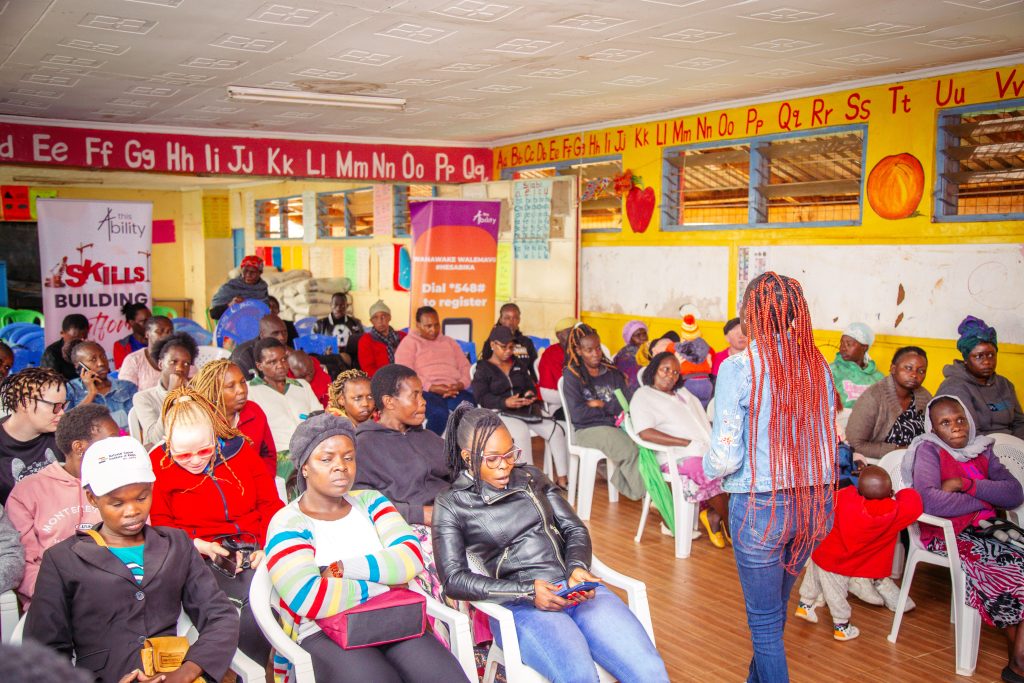Paza
Background
Kenya’s healthcare system is facing a significant crisis, with the Ministry of Health grappling with a KSh 59 billion budget deficit amid a global funding freeze. These financial constraints are severely impacting access to Sexual and Reproductive Health and Rights (SRHR) services, disproportionately affecting women with disabilities. As public health services shrink, the cost of care is increasingly shifting to individuals, further marginalizing those who already face systemic barriers to healthcare access.
For women with disabilities, these cuts have far-reaching consequences, including reduced accessibility of healthcare facilities, limited availability of assistive technologies, and inadequate training of healthcare providers on disability-inclusive care.
At the same time, a critical data gap continues to obscure the realities faced by women and girls with disabilities. Existing disability data is inaccurate and incomplete, leading to their needs being systematically overlooked in policy and resource allocation. This invisibility exacerbates their marginalization, restricting access to healthcare, education, and economic opportunities. Without reliable data and targeted interventions, these barriers persist, trapping women with disabilities in a cycle of poverty, exclusion, and limited agency over their SRHR choices
Additionally, Kenya’s civic space has been downgraded to “Repressed” by the CIVICUS Monitor, as reported on December 4, 2024. This follows a crackdown on civic freedoms after nationwide protests, further restricting advocacy efforts for disability-inclusive SRH services. A repressive civic environment undermines the work of Civil Society Organizations (CSOs) and advocacy groups, stalling policy reforms, weakening accountability mechanisms,and limiting independent monitoring of health service delivery. These constraints make it increasingly difficult to push for inclusive policies and ensure equitable access to essential SRHR services for women with disabilities.

The intersection of budget cuts, data invisibility and civic repression, a presents a profound crisis one that demands urgent action, evidence-based advocacy, and policy reforms.This collaboration will provide women with disabilities the visibility, voice, and access they deserve in healthcare and policy discussions, ensuring that no one is left behind in the pursuit of sexual and reproductive health rights.The aim is to amplify the voices of women with disabilities, advocate for their rights, and give women with disabilities a platform to self advocate.
Long Term Goals
To collaborate with stakeholders to influence the Ministry of Health to adopt recommendations of the policy brief ‘Increasing Access to Sexual Reproductive Health Services and Information for Women and Girls with Disabilities.Short Term Goals
Strengthen stakeholder engagement through formation of the technical working group to cascade the Policy Brief recommendations with Women with Disabilities, Healthcare Providers, MOH representatives, and CSO groups to advocate for adoption of the policy recommendation across 20 counties. Leverage the Hesabika platform to drive evidence-based advocacy, and amplify awareness of the policy brief recommendations within communities of women with disabilities.Overall Objectives
To strengthen advocacy efforts and build widespread support for the adoption of the policy brief recommendations on “Increasing Access to Sexual Reproductive Health Services and Information for Women and Girls with Disabilities” by engaging key stakeholders, establishing local networks, and utilizing digital platforms like Hesabika to amplify awareness and foster community-led advocacy across 13 counties.
Expected Outcome
- Strengthened collaborative advocacy platform for stakeholder coordination and collective action between women with disabilities, healthcare providers, CSOs, and MoH representatives to advocate for policy brief recommendations.
- Increased awareness and strengthened evidence-based advocacy on sexual and reproductive health rights of women with disabilities through the Hesabika Platform
